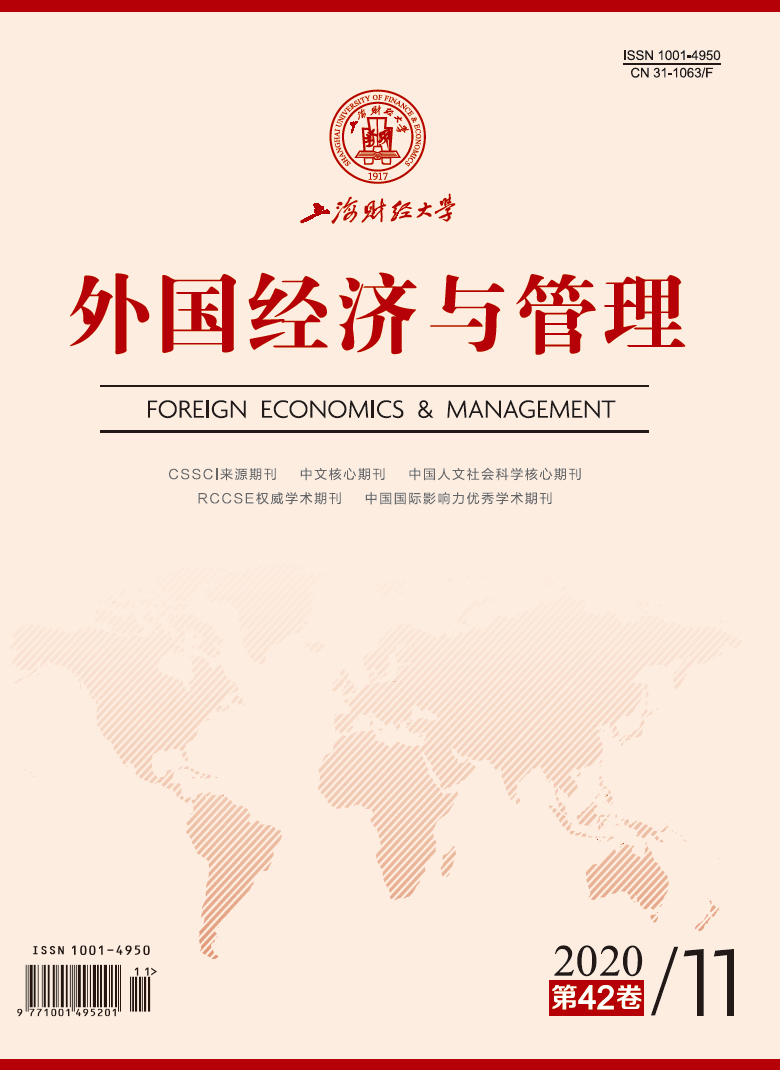当前日益显著的高不确定及高失业率的职业环境,不断加剧制造业基层技能员工的职业危机。本研究基于阴阳和谐认知框架和工作要求—资源(JD-R)理论,探索反思能力、行为能力、交际能力这三个职业能力维度和工作重塑对创新行为的影响。本研究针对广西的5家制造业企业选取371个样本进行了问卷调查与实证分析。研究结果表明:职业能力三维度均能促进员工的创新行为;职业能力三维度能够通过激发员工的工作重塑进而促进创新行为;交际能力的提升能促进反思能力和行为能力对工作重塑的影响,进而促进个体创新行为。因此,本文验证了工作重塑的中介作用以及职业能力的交际能力维度的调节作用,厘清了职业能力各维度之间及其与创新工作行为的作用机制,丰富了职业能力和创新领域的研究内容,拓展了JD-R理论的适用范围。此外,本文聚焦于长期未受到重视但对社会稳定影响较大的基层技能职工的职业发展问题,并说明了基层员工需要通过增强职业能力的方式来促进创新,为基层技能职工未来的职业发展指明了方向。
职业能力、工作重塑与创新行为——基于阴阳和谐认知框架
摘要
参考文献
6 覃大嘉, 杨颖, 刘人怀, 等. 技能员工的创新、承诺与离职: 被中介的调节模型[J]. 管理科学,2018, (2): 20-32. DOI:10.3969/j.issn.1672-0334.2018.02.002
7 王甜, 陈春花, 宋一晓. 挑战性压力源对员工创新行为的“双刃”效应研究[J]. 南开管理评论,2019, (5): 90-100, 141. DOI:10.3969/j.issn.1008-3448.2019.05.009
13 尹奎, 刘娜. 工作重塑、工作意义与任务复杂性、任务互依性的调节作用[J]. 商业研究,2016, (11): 112-116. DOI:10.3969/j.issn.1001-148X.2016.11.015
14 张振刚, 李云健, 李娟娟. 心理资本、创新氛围感知与创新行为关系研究[J]. 中国科技论坛,2015, (2): 119-124. DOI:10.3969/j.issn.1002-6711.2015.02.022
17 Akkermans J, Brenninkmeijer V, Huibers M, et al. Competencies for the contemporary career: Development and preliminary validation of the career competencies questionnaire[J]. Journal of Career Development,2013, 40(3): 245-267. DOI:10.1177/0894845312467501
21 Bakker A B, Demerouti E. Job demands–resources theory[A]. Chen P Y, Cooper C L. Wellbeing: A complete reference guide[M]. Chichester: John Wiley & Sons, 2014.
22 Bakker A B, Tims M, Derks D. Proactive personality and job performance: The role of job crafting and work engagement[J]. Human Relations,2012, 65(10): 1359-1378. DOI:10.1177/0018726712453471
23 Brenninkmeijer V, Hekkert-Koning M. To craft or not to craft: The relationships between regulatory focus, job crafting and work outcomes[J]. Career Development International,2015, 20(2): 147-162. DOI:10.1108/CDI-12-2014-0162
24 Briscoe J P, Hall D T. The interplay of boundaryless and protean careers: Combinations and implications[J]. Journal of Vocational Behavior,2006, 69(1): 4-18. DOI:10.1016/j.jvb.2005.09.002
25 Capra F. The Tao of physics: An exploration of the parallels between modern physics and eastern mysticism[M]. BantamNew York: Shambhala, 1975.
27 Chin T. Harmony as means to enhance affective commitment in a Chinese organization[J]. Cross Cultural Management: An International Journal,2014, 21(3): 326-344. DOI:10.1108/CCM-05-2012-0038
28 Chin T. Harmony and organizational citizenship behavior in Chinese organizations[J]. The International Journal of Human Resource Management,2015, 26(8): 1110-1129. DOI:10.1080/09585192.2014.934882
29 Chin T, Jiao H, Jawahar I M. Sustainable career and innovation during manufacturing transformation[J]. Career Development International,2019a, 24(5): 397-403. DOI:10.1108/CDI-09-2019-331
30 Chin T, Li G Y, Jiao H, et al. Career sustainability during manufacturing innovation: A review, a conceptual framework and future research agenda[J]. Career Development International,2019b, 24(6): 509-528. DOI:10.1108/CDI-02-2019-0034
31 Chin T, Liu R H. Understanding labor conflicts in Chinese manufacturing: A Yin-Yang harmony perspective[J]. International Journal of Conflict Management,2015, 26(3): 288-315. DOI:10.1108/IJCMA-09-2014-0074
32 Chin T, Rowley C, Redding G, et al. Chinese strategic thinking on competitive conflict: Insights from Yin-Yang harmony cognition[J]. International Journal of Conflict Management,2018, 29(5): 683-704. DOI:10.1108/IJCMA-09-2017-0101
34 De Spiegelaere S, Van Gyes G, De Witte H, et al. On the relation of job insecurity, job autonomy, innovative work Behaviour and the mediating effect of work engagement[J]. Creativity and Innovation Management,2014, 23(3): 318-330. DOI:10.1111/caim.12079
35 Demerouti E, Bakker A B, Nachreiner F, et al. The job demands-resources model of burnout[J]. Journal of Applied Psychology,2001, 86(3): 499-512. DOI:10.1037/0021-9010.86.3.499
36 Guan X Y, Frenkel S. How HR practice, work engagement and job crafting influence employee performance[J]. Chinese Management Studies,2018, 12(3): 591-607. DOI:10.1108/CMS-11-2017-0328
37 Hoarau H, Kline C. Science and industry: Sharing knowledge for innovation[J]. Annals of Tourism Research,2014, 46: 44-61. DOI:10.1016/j.annals.2014.01.005
38 Hobfoll S E. Social and psychological resources and adaptation[J]. Review of General Psychology,2002, 6(4): 307-324. DOI:10.1037/1089-2680.6.4.307
39 Hobfoll S E, Johnson R J, Ennis N, et al. Resource loss, resource gain, and emotional outcomes among inner city women[J]. Journal of Personality and Social Psychology,2003, 84(3): 632-643. DOI:10.1037/0022-3514.84.3.632
40 Kuijpers M, Meijers F, Gundy C. The relationship between learning environment and career competencies of students in vocational education[J]. Journal of Vocational Behavior,2011, 78(1): 21-30. DOI:10.1016/j.jvb.2010.05.005
42 Lloyd G E R. Adversaries and authorities: Investigations into ancient Greek and Chinese science[M]. Cambridge: Cambridge University Press, 1996.
43 Putnam L L, Fairhurst G T, Banghart S. Contradictions, dialectics, and paradoxes in organizations: A constitutive approach[J]. Academy of Management Annals,2016, 10(1): 65-171. DOI:10.5465/19416520.2016.1162421
45 Rudolph C W, Katz I M, Lavigne K N, et al. Job crafting: A meta-analysis of relationships with individual differences, job characteristics, and work outcomes[J]. Journal of Vocational Behavior,2017, 102: 112-138. DOI:10.1016/j.jvb.2017.05.008
46 Schad J, Lewis M W, Raisch S, et al. Paradox research in management science: Looking back to move forward[J]. The Academy of Management Annals,2016, 10(1): 5-64. DOI:10.5465/19416520.2016.1162422
48 Van Emmerik I J H, Schreurs B, de Cuyper N, et al. The route to employability: Examining resources and the mediating role of motivation[J]. Career Development International,2012, 17(2): 104-119. DOI:10.1108/13620431211225304
49 Vogt K, Hakanen J J, Brauchli R, et al. The consequences of job crafting: A three-wave study[J]. European Journal of Work and Organizational Psychology,2016, 25(3): 353-362. DOI:10.1080/1359432X.2015.1072170
50 Xanthopoulou D, Bakker A B, Demerouti E, et al. The role of personal resources in the job demands-resources model[J]. International Journal of Stress Management,2007, 14(2): 121-141. DOI:10.1037/1072-5245.14.2.121
51 Yip K S. Self-reflection in reflective practice: A note of caution[J]. The British Journal of Social Work,2006, 36(5): 777-788. DOI:10.1093/bjsw/bch323
引用本文
覃大嘉, 曹乐乐, 施怡, 等. 职业能力、工作重塑与创新行为——基于阴阳和谐认知框架[J]. 外国经济与管理, 2020, 42(11): 48-63.
导出参考文献,格式为:






 6053
6053  8007
8007

